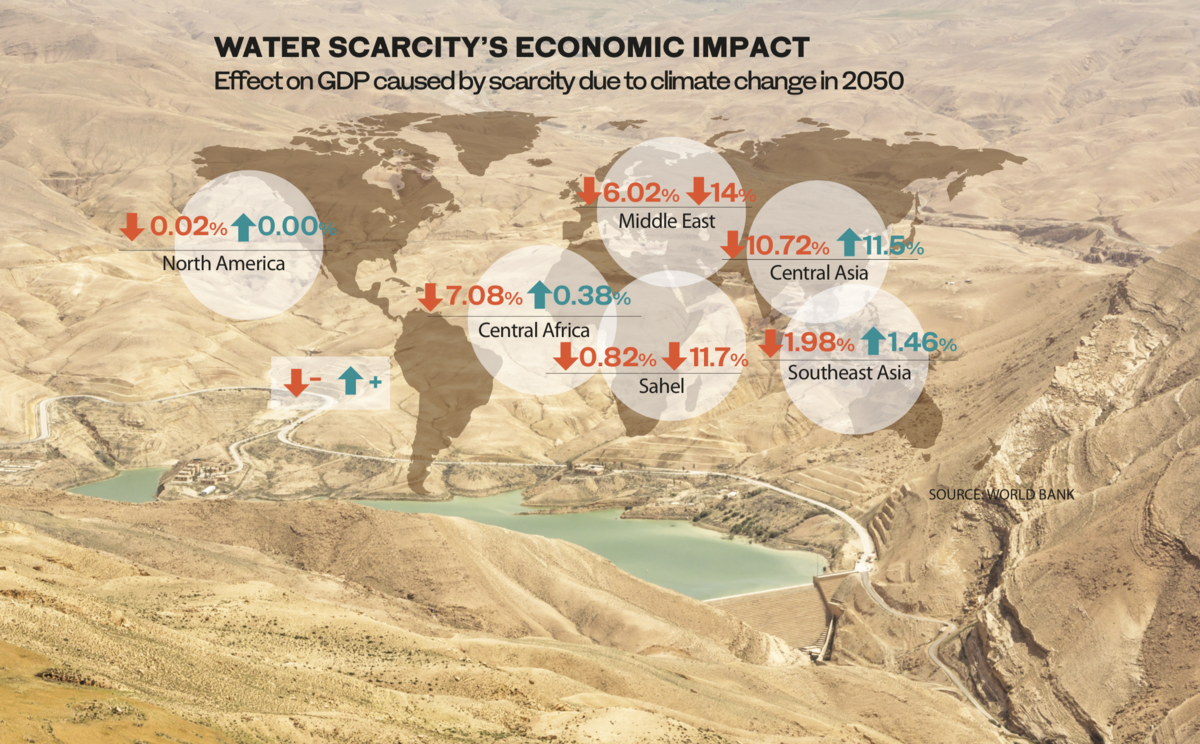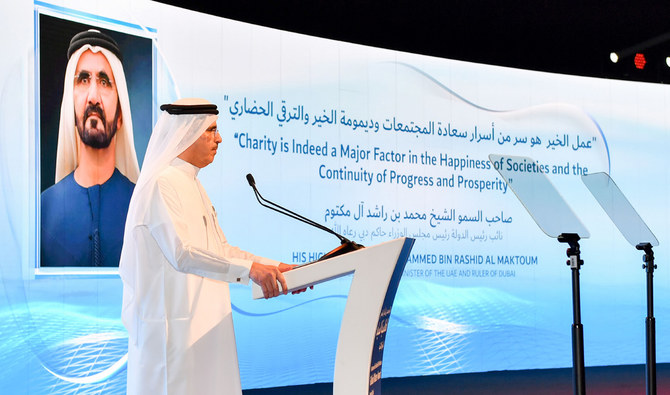DUBAI: Millions of vulnerable families around the world do not drink, cook, or bathe with clean water — a basic resource that is too often taken for granted.
Water is a fundamental human need and a driver for sustainable growth, yet water scarcity affects more than 40 percent of the global population and is projected to rise.
The numbers can be intimidating: Three in 10 people on the planet lack access to safe drinking water; one in four primary schools lack drinking water; and more than 700 children die every day due to poor sanitation and unsafe water.
The second edition of the Mohammed bin Rashid Al-Maktoum Global Water Award, supervised by the UAE Water Aid Foundation, Suqia, highlighted last month the contributions of individuals, innovators and research centers working to solve this pressing problem.
The efforts of 10 individuals and entities, from eight different countries, in developing “sustainable and innovative solar-energy solutions to the problem of water scarcity” were recognized through the awards in Dubai.
Dr. Mahmoud Shatat, a sustainable energy and water specialist at the University of Nottingham in the UK, won the $40,000 Distinguished Researcher Award in the Innovative Individual category.
His invention promises big reductions in energy consumption. “I couple the technology with solar and renewable energy,” he told Arab News.
“Heat pumps are linked to solar and wind energy and, right now, solar is a promising technology. My project is still in the research stage, but I will use this grant to further develop the technology.”
Shatat, a Palestinian national, said his technology is designed for “people who live in remote areas or conflict zones” where water can be hard to find.
“I developed a solar water-desalination system to convert salty or dirty water into fresh water at a minimal cost that vulnerable people and communities can afford,” he said.
Shatat trains PhD students in water technologies and desalination at Palestine’s Al-Azhar University’s Water and Environment Institute, when he is not busy advising international agencies working in water desalination.
Among them are GIZ, a Germany-based service provider in international cooperation for sustainable development and education, and the US Agency for International Development.
“I traveled to Yemen to train engineers on solar water desalination, and in Gaza as well,” Shatat said. “I trained my lovely people and my community.”

Despite there being sufficient supplies of freshwater, millions of people who live in dry-land conditions are forced to live without it.
The majority of those people live in isolated rural areas and spend hours walking to collect and transport water for their families every day.
That water is often unclean and contaminated, leaving people sick with waterborne diseases such as diarrhea, cholera and typhoid.
Not only does walking long distances while carrying 20 liters of water cause severe health issues, but it also keeps children out of school and wastes time that families could be using to earn an income.
Against this backdrop, the Innovative Individual Award in the Youth Category of the Mohammed bin Rashid Al-Maktoum Global Water Award went to Dr. Muhammad Shahzad of Pakistan and Jan Radel, of Germany.
Radel has specialized in rainwater harvesting in remote locations, which provides safe drinking water for 1,500 children in three schools in Tanzania.
His system purifies water by an ultra-filtration process driven by gravity. “In order to overcome the pressure that we needed to elevate the water into a tower, we used solar-powered electrical pumps,” Radel told Arab News.
“It’s innovative to have this industrial technology — which normally requires a lot of pressure, chemicals and complex processes — (replaced by) a very low-tech application that doesn’t require a lot of energy but delivers the same performance as the industry.”
The technology could find a market in countries such as Saudi Arabia, which has been trying to lower the cost of water extraction and increase its utilization of renewable energy.
“We already have the innovations,” Radel said. “So what we need now is concepts and using these applications.”
Experts say many innovations meet or exceed expectations in the lab or in small pilot studies, but the real test comes in the field.
Suqia says it has so far positively influenced the lives of “over nine million people in 34 countries by providing them with access to clean water” with the help of its implementing partners.
“Humanitarian work has become a daily practice in UAE society,” said Saeed Mohammed Al-Tayer, who serves as the chairman of Suqia’s board of trustees.
“UAE foreign aid focuses on improving the quality of life of those less fortunate by implementing projects helping nations in need. Water is the cornerstone of economic, social and environmental development.”
Al-Tayer notes that boosting the supply of potable water is a vital element of the UN Sustainable Development Goals, which aim to ensure the availability of clean water and sanitation.
Also among the 2020 award winners were the UAE’s International Business Ventures, in partnership with Zero Mass Water from the US, Germany’s Boreal Light GmbH, the UAE’s Khalifa University, Ghana’s Project Maji, Chile’s Plasma Waters and Singapore’s Liquinex Group Pte Ltd.
“We were able to eliminate 100 percent of viruses and bacteria in highly polluted water through the transformation of a continuous flow of contaminated water into plasma,” said Joaquin Troncoso, head of engineering at Chile’s AZ Foundation.
“Through a sharp pressure drop inside the reaction chamber, the water is transformed into biphasic liquid gas stream. The biphasic flow is exposed to an electrical current field that ionizes the water particles, generating a stable plasma state.
“The water elements are then recombined and condensed as potable water suitable for human consumption.”
It took the Plasma Waters team almost nine years to develop the system, said Troncoso.
“Everything we learnt was from the lab,” he told Arab News. “It was a great challenge but we’re really proud of what we’ve achieved already.
“We have had a project running for three years in Chile and we recently started a project in Nairobi in Kenya.
“It’s very important because the water crisis is a big problem — you can’t solve the water crisis without technology and that’s our mission.”
















